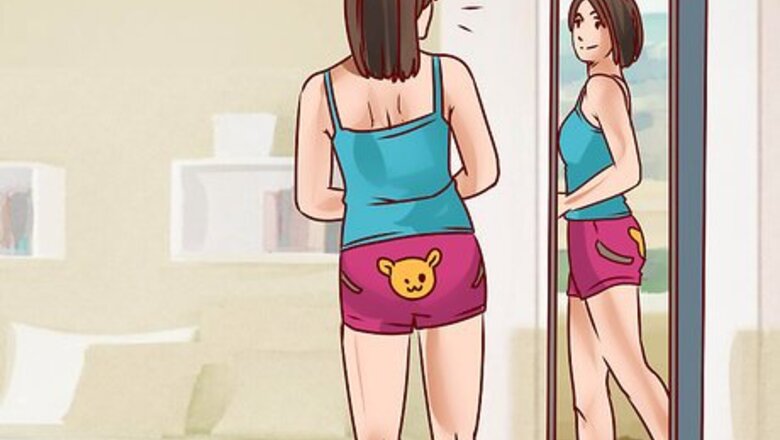
views
Starting your Transition to Puberty
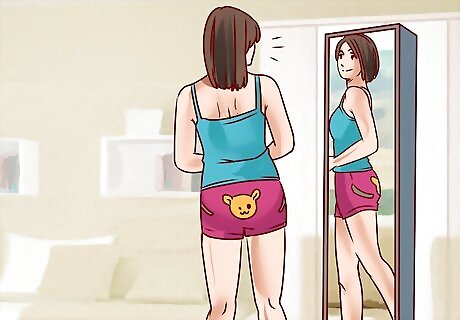
Pay attention to your body as you approach puberty. Puberty brings about many changes physically and mentally, as well as emotionally. Your body goes through hormonal changes, and you will notice your body slowly changing from a child’s body into an adult’s body. If you’re wondering whether you’re becoming a teenager yet, just look at your body! Most males begin puberty between ages nine and 15, while most females begin earlier: between ages eight and 13. You might feel awkward or embarrassed at first, but this is a natural process, and you will eventually become comfortable with your body.
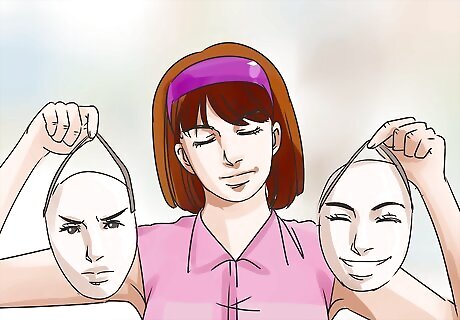
Notice if you’re experiencing mood swings. Your brain and hormones are going through puberty along with your physical body, and they will experience changes as well. Expect an occasional mood swing: one minute you’ll feel happy, then you’ll feel angry or sad, and then happy again. This is typical; your body is going through hormonal changes and this is how your brain manages all the mental and physical changes of puberty. This is a common first step as you approach puberty. If you notice yourself experiencing frequent mood swings, puberty is just around the corner. If you notice an increase in negative thoughts or are occupied with thoughts of harming yourself or others, talk to your parents or to your school counselor as soon as possible.
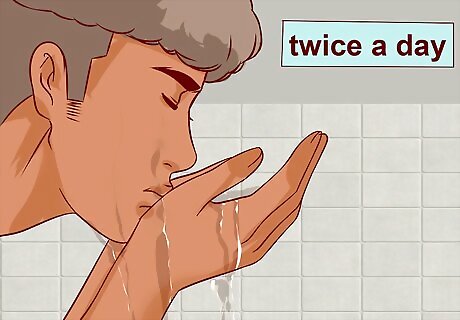
Wash your face twice daily to reduce acne. During puberty, hormonal changes going on in your body will stimulate oil glands under the surface of your skin. This will make your skin feel more greasy, as more oil is pushed to the surface. As a result, outbreaks of pimples are likely to increase, especially if you have poor facial hygiene. To help prevent serious acne: Wash your face with lukewarm water and a gentle facial cleanser twice a day to keep the pimples from showing up and getting bigger. Drink more water so that your body can flush out toxins. Acne can also be genetic. If you start noticing an increase in pimples, ask your parents if they suffered from many outbreaks during puberty. You may wish to see a dermatologist for additional skin care.
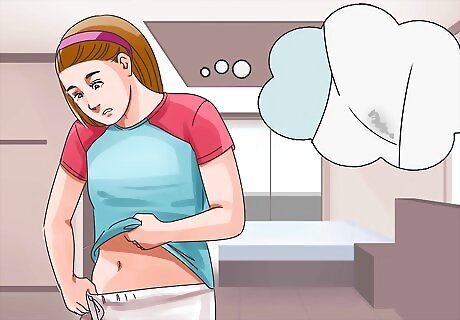
Watch for hair in your pubic area and expect more body hair in general. Hair will start to grow in your groin, just like under your armpits. In fact, hair will often start to grow in both places around the same time — early in puberty, often around age nine. Pubic hair and body hair growth are signs that you have definitely entered puberty. While mood swings, acne, and other hormonal developments precede or lead into your pubescence, body hair growth and upcoming growth spurts are sure signs to help you know that you have entered puberty.
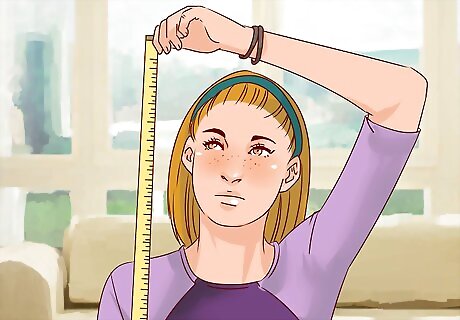
Get ready for growth spurts. Puberty brings about frequent growth spurts as your body grows into that of an adult. While growth can occasionally be physically painful, a larger concern — especially for parents — is that you will quickly outgrow your clothes and shoes until your growth spurts have stopped. Since everyone begins puberty at different times, some teenagers will begin their growth spurts before their peers. This is normal, even if it’s sometimes a little socially awkward. Young women will notice their hips becoming wider and will begin to develop breasts. Young men will notice their shoulders becoming broader and their chests filling out.

Talk to adults that you respect and feel comfortable around. When you feel concerned, embarrassed, or insecure about your puberty, talk to someone about it. Try to talk about it with your parents/guardian, family members, or another adult you trust. Remember, they’ve all been through it. It’s also a good idea to visit your doctor yearly while you are going through puberty. He will make sure you are healthy and can answer any questions you may have.
Dealing with Aspects of Puberty for Females
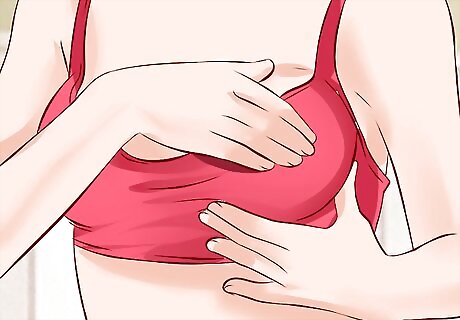
Observe your breasts. This is often the first sign of puberty for females: your breasts will start to grow, at first by developing a small “bump” under each nipple. Many people with breasts find that their breasts develop unevenly; one may grow more rapidly than the other. Don’t be alarmed; this is a normal part of puberty, and they’ll even out with time. This process often causes some soreness around your developing breasts — don’t be concerned, this is normal.
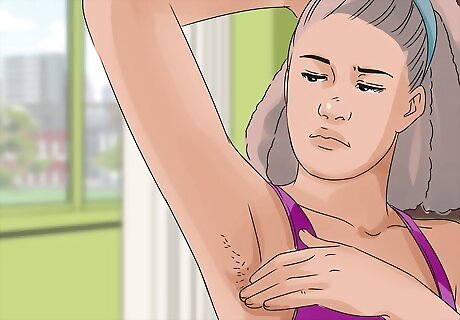
Observe your armpits to see if there are any small hairs beginning to grow. Once you’ve hit puberty, hair will start to grow under your armpits. Your armpits will produce more sweat as well, even if you’re not exercising. Most adolescents begin wearing deodorant during puberty, to prevent any unpleasant body-odor smells that may develop. It's also important to bathe or shower daily. Many people begin to shave their armpit hair. This is a fine thing to do, especially if you consider this hair to be unattractive or uncomfortable.
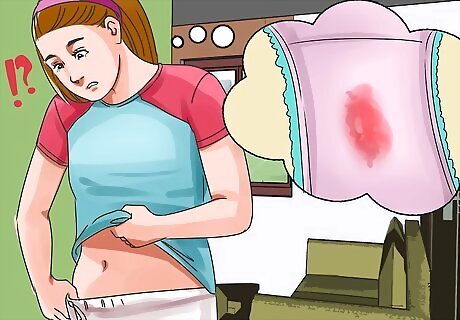
Expect to start menstruating once you have entered puberty. One of the major signs of puberty in females is menstruation, which usually begins one to three years after you first begin puberty. If you often find little brown-reddish spots or a white or dark fluid in your underwear, be prepared for your first menstruation to begin soon. Menstruation is a monthly process that many people experience. Each month, an egg from one of your ovaries will descend to your uterus, only to be shed along with the inner lining of your womb. The eggs and uterine lining exit through your vagina, and this process causes monthly bleeding. It helps to have a box of sanitary pads ready in advance. If you’re uncertain about how to use them, you can ask your parent/guardian or a sibling to show you. You may want to have one or two in your backpack or locker at school in case your period begins at school. Your periods may be inconsistent or widely spaced out at first. As you age, they will happen monthly, but at first, you may only have a period once every six months.
Dealing with Aspects of Puberty for Males

Keep an eye on your genitals. As you enter puberty, you will notice that your testicles increase in size and physically descend. This is an important part of sexual maturation, and will often be the first sign that you notice. As your body begins to develop and to produce more testosterone, you will begin to physically look more like a man. As part of this process, your penis will increase in size as well.

Listen to your voice. As young men enter puberty, their voices will start to crack. This is one of the most well known signs of male puberty — over time, your voice will deepen and you will start to sound more like a man and less like a boy. Although the “cracking” in your voice can be unexpected and slightly embarrassing, it usually only lasts for a few months. Your larynx (or “voice box”) will grow. This results in a more pronounced Adam’s apple.
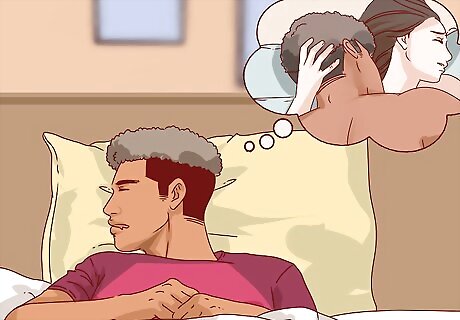
Plan to begin having occasional more frequent erections and wet dreams. As a young persons' body goes through puberty, its sexual organs mature and began to behave in sexual ways. As you enter puberty, you’ll start to have more frequent erections — some of these will be caused by sexual stimulants, but others will simply occur for no reason. You will also begin to experience wet dreams: a sexual arousal and ejaculation while you are asleep. Not every young man has wet dreams, but if you experience them, it’s completely normal.
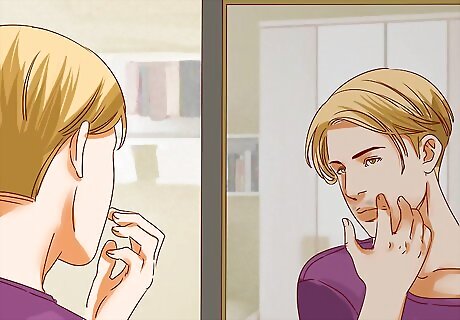
Expect to start growing facial hair. For males, facial hair will often be the last to start growing, and it will often start around the chin or upper lip. You can tell that you’re growing increased facial hair as a result of puberty when it comes in slightly darker than the very light hair you had on your face as a child. You may not need to shave your face until sometime in high school. Buy a razor in anticipation of shaving your face. Shaving your face can seem dangerous or difficult at first; if you’re concerned, have one of your parents show you how to shave.


















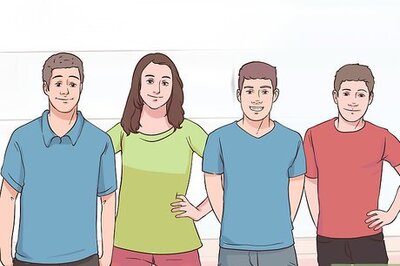
Comments
0 comment